What was supposed to be a relaxing weekend, turned into a technological nightmare. Apple sent me an invitation to upgrade my Mac operating system. I pushed the button, and immediately wished that I hadn’t- then spent the entire weekend tearing my hair out, as the download jammed, blocking a return to my home screen. Finally, I managed to reinstall the previous operating system- without wiping my entire hard drive- and I’m now back at my desk, typing away. So apologies for the lack of a newsletter yesterday morning. Taking Nancy Mitford’s ‘Friday to Monday’ into account, hopefully, you’ll let me get away with it.
I came late to Bitter Moon (1992). Roman Polanski’s ‘erotic romantic thriller’- as Wikipedia puts it. I saw it at the cinema when it first came out, with a friend, and, at that time, in my twenties, bought into the idea of Bohemian Paris. I had fantasies about moving to the City of Lights, becoming a writer, like Hemingway in A Moveable Feast, or in the footsteps of Zelda and Scott, or Gertrude Stein, imagining myself as a boulevardier, a flâneur living in a book-filled apartment, with weeping discarded mistress, Gitanes stubs and a black polo neck. A phoney existentialist existence- along the lines of my half-finished Penguin Sartre, or Françoise Sagan’s Bonjour Tristesse, even if, the trappings- and all that came with it- appealed. Alas, my little sister moved to Paris and I remained in London. And I’m still here. My second outing of Bitter Moon came later, about fifteen years ago, and I enjoyed it, but dismissing it as one of Polanski’s lesser efforts, finding it a trifle pretentious. Watching it again, a few days ago, I’m not sure that’s the right analysis- now I like Bitter Moon very much indeed. Which goes to show, that film is often enjoyed more as you get older. Put it this way, I fell asleep, alas, during my first viewing of Visconti’s Ludwig (1973) at the Everyman Hampstead). Now I’m gripped.
And Roman Polanski has to be one of my all-time favourite directors. It’s the sheer diversity of his work. From the occult horror of Rosemary’s Baby (1968) and the amusing and entertaining The Ninth Gate (1999), to the dodgy Hitchcockian homage, Frantic (1988), and Repulsion (1965), with poor Catherine Deneuve losing her marbles on the streets of South Kensington. And then there’s Tess (1979 and Cul-de-Sac (1969) with Catherine Deneuve’s sister, Françoise Dorléac; and Knife in the Water (1962). And Chinatown (1974) and The Pianist (2002). It’s an extraordinary achievement.
Peter Coyote stars as Oscar, an American wannabe writer, with romantic ideas of Paris in the 1920s, his appealing flat lined with books and photographs of F. Scott Fitzgerald, Hemingway and Henry Miller. And there’s a genuinely lovely and touching scene, beautifully made, on a Parisian bus with Emmanuelle Seigner, set to Vangelis’ dream-like music, as she sits on the back of the bus, with all the traffic- Citroens, Peugeots and Renaults- behind. It sounds cheesy, but Polanski gets away with it. There’s also a lovely scene, again beautifully photographed, on the carousel at the Jardin des Tuileries. That incidentally, is another thing I didn’t appreciate at the time. Not Ms. Seigner. Or the Jardin des Tuileries. Those Eighties film soundtracks: now I’m an avid fan of cinematic electronica. It’s sophisticated stuff; probably under appreciated.
Which sets us up for the erotic mischief to follow. Bitter Moon is based on Lunes de Fils (1975) by French philosopher, Pascal Bruckner (in English aka as Evil Angels), a novel described by Kirkus Reviews as "a dreary French novel of existential agony and absurdly serious erotica", and "laughable drivel disguised as a cynical, sophisticated love story", followed by a slightly better review in Publishers Weekly: “a bestseller in France, Evil Angels is a diabolical anatomy of lust in all its ramifications, with a plot that will keep readers enthralled”.
Emmanuel Seigner is fabulous as Mimi- as she always is- I mean, she’s really sexy. Incredibly appealing and rather vulnerable. Polanski seems to have this obsession: as with Frenzy, he gets her to strut her stuff in a tight, curve-hugging red mini-dress- in a tacky, middle-aged discotheque. To Bryan Ferry’s Slave to Love. And that’s where Nigel and Fiona come in- two uptight English Sloanes on some ghastly cruise, on it’s way to India, via Istanbul- brilliantly cast with Hugh Grant and Kristin Scott Thomas- with Nige, taking time off his game of Bridge to get a fix on ‘that creepy American cripple and his sexy wife’, as Fiona puts it. Which puts us in Ian McEwan’s Comfort of Strangers territory- later made into a film with Rupert Everett and the late, lovely, much missed Natasha Richardson. Remember that? Two uptight English Sloanes, on holiday in Venice, encounter a pervy gentleman in a white linen suit and a panama hat. Up to no good. Sort of Eurotrash Dirk: Death in Venice Gone Very Wrong. Really warped- there must have been something in the canal water. Yet, at the same time, Bitter Moon’s amusing, in a dark way- for those of us with a dry sense of humour. And it may be the reason it failed at the box office. Was it a comedy or a tragedy? Or both? Audiences couldn’t make it out. And it’s hard to take the hilarious bondage stuff seriously, exactly, as I suspect Polanski intended. The man has a sense of humour. As I have always said, right from the beginning, this is cinema for grown ups.
I love Hugh Grant in his earlier incarnation. As Lord Byron in Rowing with the Wind (1987) the lead in Gonzalo Suárez’s arty-farty Euro pudding of a picture, based on Mary Shelley’s haunted summer at the Villa Diodati in 1816. Hugh’s also fab in Ken Russell’s The Lair of the White Worm (1988) and Night Train to Venice (1993). And Kristin Scott Thomas’ perfect too. With that very English, chilly brittleness. Like Lady Brenda Last in the almost forgotten A Handful of Dust (1988). But Bitter Moon, I think, is not just a film about sexual desire, power and control. It’s more interesting than that. It’s about relationships and how our own selfish actions can affect other people and how we need to look at ourselves and examine our own failings. Oscar is initially likeable, turning from from an attractive, if failed, romantic to a detestable, unhinged loser. Mimi, initially vulnerable, gets warped revenge. What might be sweet for one person, can also be bitter for another.
And there’s a rather touching scene at the end, on the cruise liner, with a Mr Singh (Victor Banerjee) and his pretty little daughter- for, ultimately, Nigel and Fiona will survive. But that’s probably enough said. It’s for you to find out and make your own mind up about. Bitter Moon (1992) is now heading for cult status, which just goes to show that film, like fiction, is an art form needing constant reappraisal. Polanski is always interesting. And never boring. That cardinal sin.
Roman Polanski’s Bitter Moon (1992) is available to watch on DVD and Blu-Ray. I’m also eyeing up a Special Edition DVD. It’s also available to watch on YouTube films, with a ‘pay for it now’ subscription. Worth every penny, this one.
You've just been reading a newsletter for both free and 'paid-for' subscribers, which should have gone out yesterday, but thanks to Mac failure, didn’t. So please blame Mr. Cook. I hope you enjoyed it. Thank you to all those of you who have signed up. Really appreciated. To view the other films we’ve covered so far, please go to the Luke Honey WEEKEND FLICKS. archive.
Until next Friday…




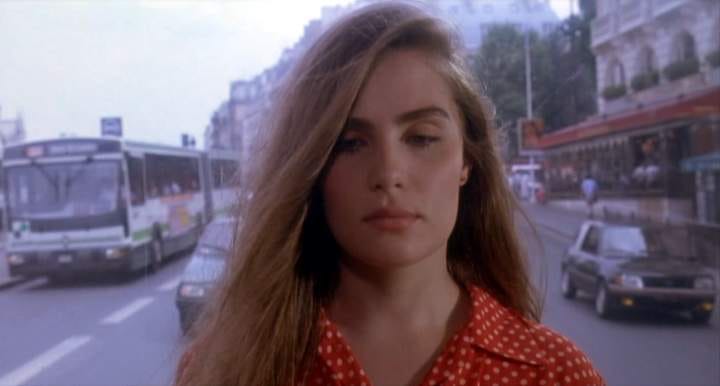
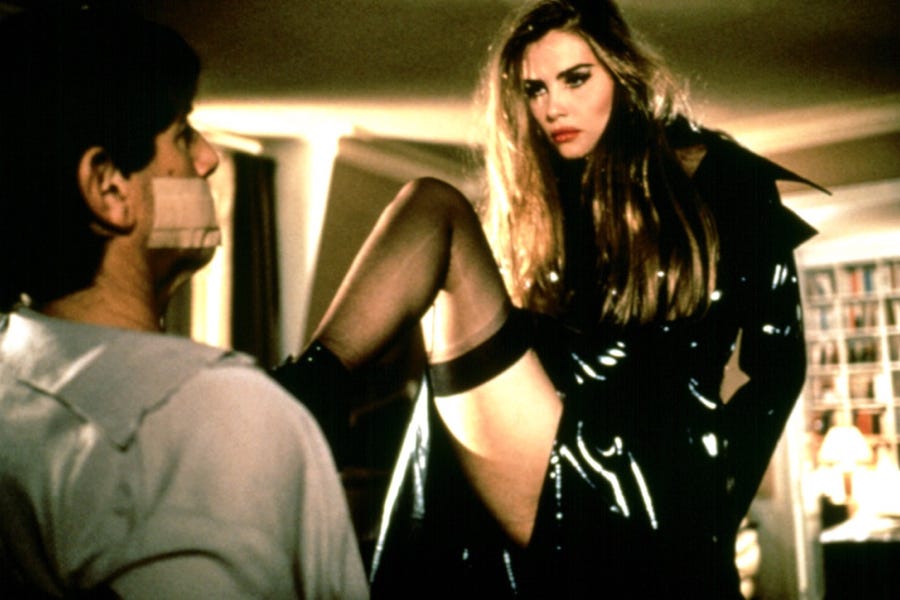
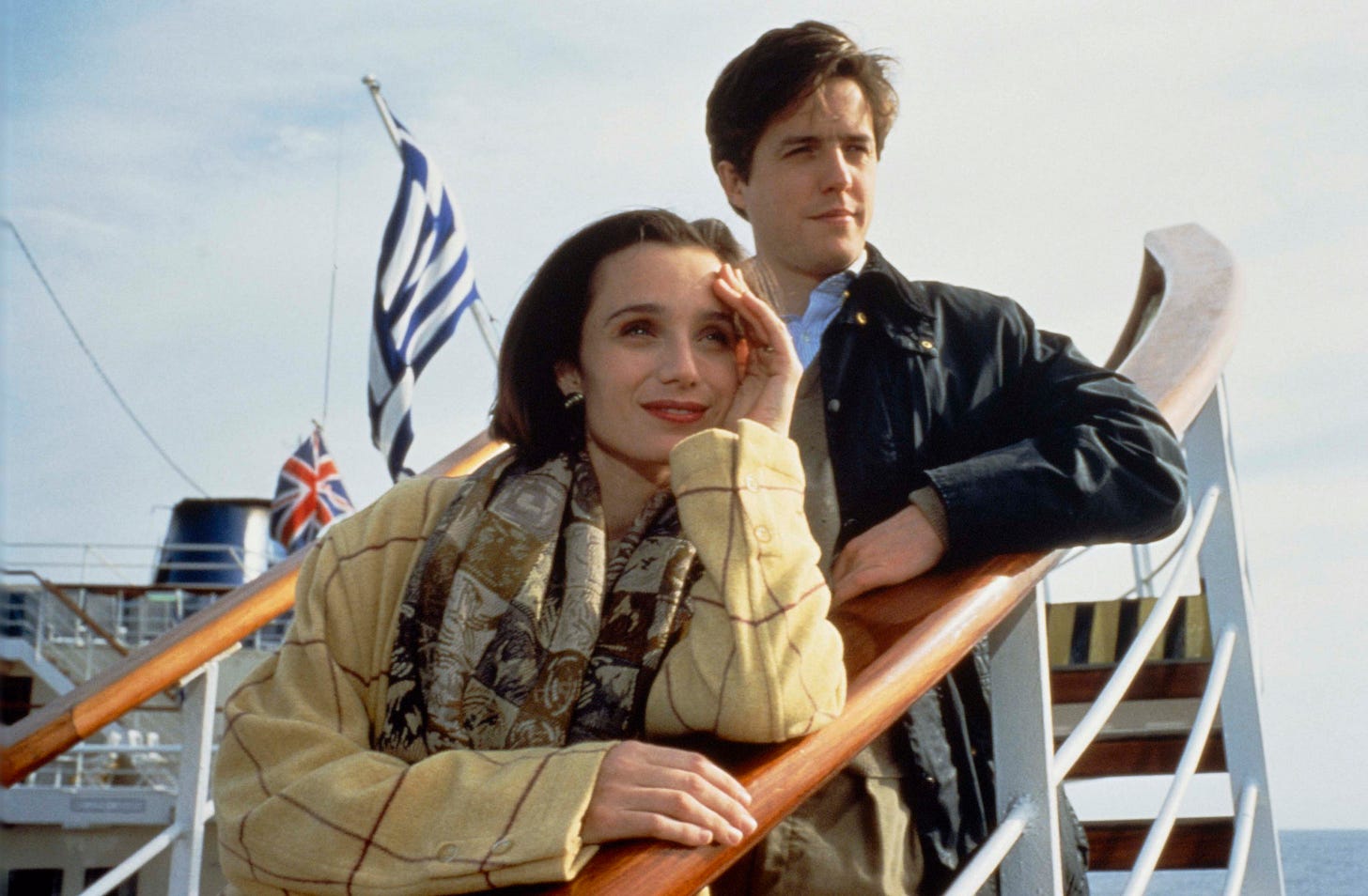
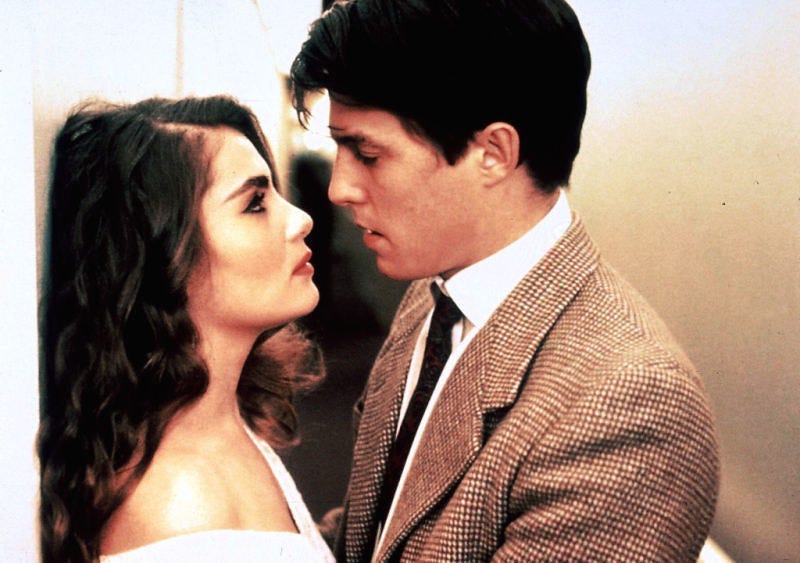

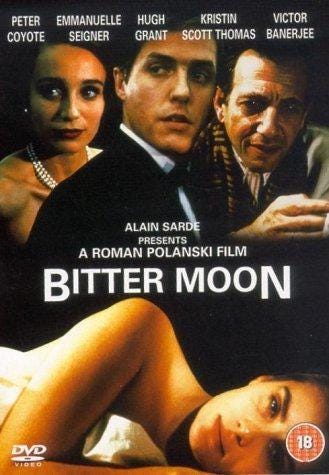
haven't seen any of theses and cannot wait to! Great bog post.
Get well soon, Luke. Your film writings are part of my weekend ritual. We must be of a similar age - the very same films seen first as either "meh" ( Barry Lyndon) or "WTF" ( Bitter Moon) become, over time, reflections of our own passage of time and - hopfully- a growing in wisdom.
Of course, some feel like masterpieces of their genre from the get go - "Rosemary's Baby" for example
Anyway - Hope to read you back on form in the very best future.